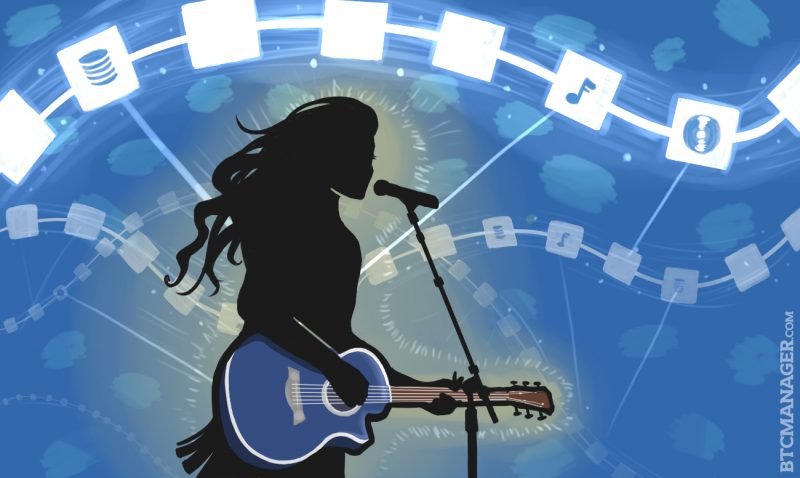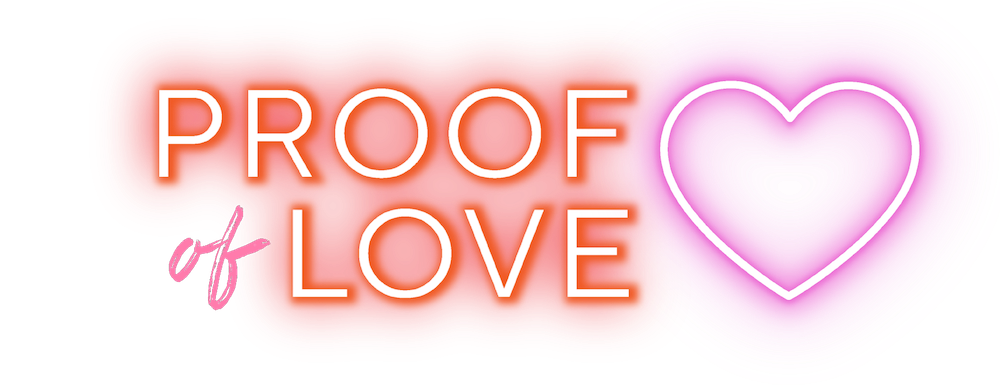Michael Scott of BTCManager interviews Tatiana about her background with crypto currency, the creation of Tatiana Coin and Artist Coins, and the exciting correlation between Blockchain technology and the music industry:
Tatiana Moroz has always had a penchant for singing from of her own unique piece of sheet music. As a singer and songwriter, as well as creator of the first-ever artist cryptocurrency, her quest in recent years has been to create a rhythmic synergy between the worlds of music and blockchain.
Growing up in New Jersey only a short distance from New York City, Moroz always knew that singing was in her blood. While growing up she was profoundly impacted by the ’60s and ’70s music that her mom would play in the car — the likes of Cat Stevens’ Peace Train — and feeling overwhelmed with how music could reflect an idea and cause cultural shifts and real change in the world. She also read a lot of dystopian novels like 1984, Brave New World and Animal Farm that had a profound effect on her worldview and thinking.
She went on to college at the distinguished Berklee College of Music in Boston and after graduating, started working in the top NY recording studios in management, as she says “making music, and observed the music industry from both the artist and studio perspective. It was also around this time that she got politically involved in the liberty movement, an experience that ultimately left her disheartened after seeing how U.S. presidential candidate Ron Paul was treated during the election process by the media and his own party.
“I ceased to believe in the system. I kept performing at liberty events because I still loved the ideas and philosophies. Yet all that time though I kept wondering how I could help bring these ideas out in a fun way through music and other means to the masses.”
In early 2015, Moroz founded Crypto Media Hub, a marketing, advertising, and PR consultancy firm. Her clients include the likes of Keep Key, Netki, Gem, Dash, and Vaultoro among others. And she continues to maintain strong ties with the liberty community, having just performed at the National Libertarian Party Convention in Orlando, Florida. She was also recently was interviewed by talk show host and media celebrity John Stossel about Bitcoin and music, which she says “was a real treat.”
Discovering bitcoin
Moroz says that when she first heard about bitcoin, she was totally bored. “It sounded so complicated, annoying, and unnecessary. I did purchase some at $11 and when it went up, I paid more attention.” Later while on a road trip in September 2013 with famed libertarian anarchist. Jeffrey Tucker, she got hooked.
“I began imagining the possibilities, the incredible creativity, and how people from all backgrounds around the world were making something through a collective effort. We didn’t have to hold “End the War” signs outside government buildings in the freezing cold. We no longer had to beg for our rights. Rather we were choosing to make solutions through this technology and many others. This was the shameless creation of a wonderful new world, and there was nothing anyone could do to stop it.”
As a musician, the next logical step for Moroz was to create a musical jingle about it because she thought that something fun was needed to teach people about it. “I wanted to contribute my own song that hopefully spoke to the soul of Bitcoin and its possibilities. Everyone at the debut in Buenos Aires at the Latin American Bitcoin Conference in December of 2013 really seemed to like it, and I was welcomed into the community.”
The blockchain’s creative disruption in the music industry
Moroz believes that if there is one space that needs to be disrupted (well, besides the money, banking and financial services industries), it’s the music industry. According to Moroz, the music industry has been notoriously cold to artists for decades — using them, not paying them fairly or on time (if at all), and making it near impossible to get in the door.
“Even though there’s this incredible indie explosion and more ways now than ever to listen to music, there is a long way to go to help more artists maintain a career.”
She cites, for example, social media’s evolution into a massive surveillance system with no privacy, where artists like herself can’t reach their fans unless they pay up.
“Our fans signed up with us and liked our pages because they want to know about our shows and releases. That used to be equitable, but now the artists have to pay Facebook to ‘advertise’ to them or else the fans see nothing. Clearly, both sides (the artist and the fans) aren’t exactly getting wined and dined by the third party in this relationship. We, therefore, want to make the middle man optional.”
The solution? Moroz says that the approach that she and her collaborators are taking is to create personally branded tokens that solve a couple of problems that affect most musicians, namely, how to get funding and how to stay connected and grow a fanbase. She also believes that there are other ways that bitcoin can help artists through micro-tipping, direct fan-to-artist payments, music rights registration, and more efficient payment administration. Moroz says that she is a big advocate of Pop Chest and Watch My Bit because they allow content creators to get paid far more than they would on YouTube. “To be honest, I think there was a bit of a late-adoption curve in the music industry, but people are really excited about it now! It’s really fun to see how things are unfolding.”
A new normal for music distribution and digital rights?
The Berklee College of Music’s Institute for Creative Entrepreneurship recently announced a groundbreaking initiative called The Open Music Initiative (OMI) that hopes to dramatically simplify the way that music creators and rights owners are identified and compensated.
Moroz laments that obtaining the licenses and then collecting and distributing the payments for music rights in the current system is a nightmare. “There are so many inefficiencies, so many mistakes, so much needless overhead, it can take years to get paid. It is truly an administrative and bureaucratic sinkhole of resources.”
Given this current environment, Moroz says that that it’s clear to her and the rest of the industry that this initiative being fostered by Berklee is long overdue.
“I couldn’t be more excited for the folks at Berklee and their partners. As a graduate, it’s good to see my alma mater taking the lead on this massive overhaul. This is not something just anyone could undertake. It requires a great concentrated effort to find solutions in the industry, since in my opinion, a lot of people have to agree to using it in order to be successful. I look forward to seeing what comes of it and if there’s a way I can help, I will! In the meantime I certainly will be registering my work on the blockchain when I release my next record.”
The release of Moroz’s newest album will coincide with the product launch and will take place alongside a crowdsale campaign later this summer. Through these efforts, she hopes to help educate other artists about options for creating their own ecosystems. “Ultimately our goal is to grow this as a p2p web of music, value, and experience exchange.”
Ushering in the first ever artist cryptocurrency
The biggest problem every artist faces, says Moroz, especially early in their career, is how to connect with their fans and fund their music. “No one likes to play to an empty room, and recording time is expensive! Sure, you can go to a label, but they don’t sign everyone. You also never know if your record will really come out. In other words, there’s very little transparency in how they are spending your money, and then you have to pay them back for the rest of your life. And who do you think has the final say over the music? Not the artist.”
Moroz notes that artists have been tapping into their fan base in recent years using services like Indiegogo or Kickstarter. This, she says, has been very successful, but there are limitations. “The campaigns only go on during a certain time, so if a fan wants to support me and misses the deadline, they’re out of luck (and I collect less donations). The prizes are also fixed. For example, if you donate $50, you get a T-shirt. What if you don’t like the T-shirt? Well, sorry you’re stuck with it.”
In Moroz’s case, Tokenly helped create her coin on Counterparty providing her with the tools needed to fundraise, sell, exchange, store, and distribute her coins and music. Set to launch in beta during the early Fall of 2016, the Tatiana Coin is the first ever artist cryptocurrency. Established by a team led by Adam B. Levine from Let’s Talk Bitcoin in partnership with Tokenly, it derives its value from the content that Moroz creates.
Says Moroz: “I recorded the first (that I know of) album ever paid for completely with Bitcoin and cryptocurrency. Since then, we have been working hard to create the best prototype for other artists to create their own coins.”
Once all of the pieces are in place for the September launch date, fans will have a desktop and mobile experience that allows them to buy coins, check out and purchase all her merchandise and tunes for TC, BTC and other cryptocurrencies, as well as USD and other fiat.
All of this is what makes Tatiana Coin unique — the fact that artists and fans are the biggest benefactors.
“Tokenly is great to work with, is open source, but if I wanted, I could leave their platform anytime and still retain control of my fans and coin holders (unlike how I lost fans moving from MySpace to Facebook). We are also implementing custom features like a direct fan/artist and fan/fan messaging layer, streaming, exclusive token-controlled access for special content, events, and ticket sales. We are also creating a place for fans and friends to hang out and be rewarded with coins for spreading the word about my music community.”
The end game, according to Moroz, is to establish a worldwide peer-to-peer web of music, value, and experience exchange.
“As artists, all we want is to play music. We want to set the terms of how it’s used and paid for, without having to worry about too much administrative overhead that has room for error. This will free us up to hang out with our fans, show them what it’s like in the studio or on tour, what it’s like to write a song, who inspired what line, and basically share our lives and build a lasting relationship with our supporters. I see a more free world that allows people to participate in voluntary exchange of value. And it is inevitable that a key element of that will be the arts! We reflect one another, and the future I see looks incredibly bright.”




